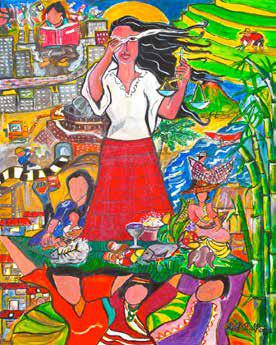
World Day of Prayer is a worldwide movement of Christian women of different traditions who gather for a day of ecumenical prayer on the first Friday of March. WDP invites local communities to join in prayer and action for peace and justice. WPD seeks to build and strengthen relationships among Christian women through ecumenical prayer. In many countries, WDP has engendered an ongoing relationship under the motto “informed prayer, prayerful action.”
Each year WDP brings to women a stimulus to learn and to study. The local communities of WDP welcome the occasion to reflect on the significance of the prayer theme for the year, and to learn about the lives of people in other countries, their lives and their challenges. The prayer gathering thus becomes an occasion for Christian women to come to new understandings about cultures, expressions of Christianity, causes for social problems, urgent world issues, and ways to address them.
WDP encourages responsible action, wisely discerned and appropriate, that grows out of the worship service and its theme. The steps toward action begin wherever women are in their everyday lives in their communities and can reach as far as the everyday lives of women in other countries.
For 2017, the theme of World Day of Prayer, “Am I Being Unfair to You?” was based on the Workers in the Vineyard in Gospel of Matthew (20:1- 16) and reflected on The Philippines, with stories told by three Filipino women. The accounts of Merlyn, Celia, and Editha gave the WDP communities a look at the lives of many Filipino women and girls who are victims of domestic violence or sex trafficking, migrant househelp workers, and survivors of natural disasters.
The WDP 2017 was observed in ecumenical rites held by some 90 congregations across Western Australia. Resource persons were invited to elaborate on the theme in relation to the Gospel, and shed light on the context of the stories shared on women, religion, and socio-economic conditions in The Philippines.
According to WDP, more than 3 million people in over 170 countries join in services or prayer events, and many contribute to a project to aid the country for which they are praying.
WDP Australia is supported by: Anglican, Australian Christian Churches, Australian Church Women, Baptist, Bible Society, Catholic, Churches of Christ, Girl Guides, Lutheran, One Life Family Church, Presbyterian, Seventh Day Adventist, The Salvation Army, Uniting Church, WCTU Drug-free Lifestyles. www.worlddayofprayeraustralia.org
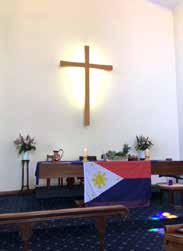
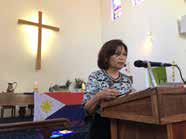
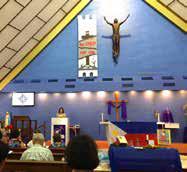
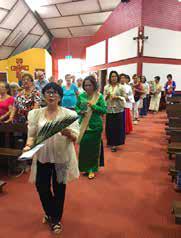
Dagyaw. In the WDP Philippines 2017 meditation narrative, the concept of dagyaw was introduced and described as “among rice farmers, calling the neigbours to help in the planting and the harvesting. No one is paid, but the harvest is shared among all.” Dagyaw is cited as “a good practice for building and sustaining a community, an actualisation of compassion and care for each other.” The narrative invites comparison of dagyaw to the generosity of the landowner who paid the full-day wages to the last-called workers in the Gospel.
In popular practice, dagyaw is the volunteer action of people to assist in the delivery of a work load which is more efficiently carried out and accomplished by a group, usually witnessed in the village community setting. Anthropologist Jose Landa Jocano writes in Twenty Three Place-Name Legends (a study on the folk lores of Antique), “Whenever a farmer needs to clear his field, build a house, or haul his produce, he would let the neighbours know he needs help. The services are without pay. The farmer needs only to return the favour with his services, should anyone of those who helped him need a hand in the future.”
Dagyaw is a Visayan term with the same meaning as the Tagalog palusong. Both practices afford occasions for folks to be useful, do something worthwhile, and be part of a group accomplishing a significant outcome. Wages are not the an overriding objective. Dagyaw and palusong are regional applications of the significant Filipino social value known as bayanihan, wherein response is generated for community undertakings, out of the kindness of people’s hearts. #TPS

